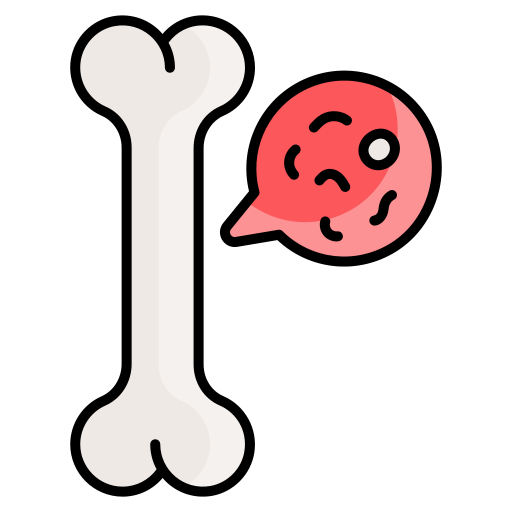
Orthopaedics
At Sharda Care - Healthcity , our Orthopaedics Department provides comprehensive care for a wide range of orthopaedic conditions, including issues with the Knee, Hip, and Joints. Orthopaedics focuses on managing ailments of the Musculoskeletal system, which encompasses the body's structure and mechanics. Our specialized doctors diagnose and treat conditions affecting Bones, Joints, Muscles, Tendons, Ligaments, Cartilage, and Nerves across all age groups. This multidisciplinary field addresses Fractures, Joint Injuries, Degenerative Conditions, and Congenital Anomalies, Aiming to restore mobility, Alleviate Pain, and enhance the quality of life for individuals worldwide.
Book an AppointmentWithin orthopaedics, various subspecialties cater to specific aspects of musculoskeletal health
-
Sports Medicine
Dedicated to athletes' well-being, sports medicine orthopaedists diagnose, treat, and prevent injuries related to physical activities, ensuring swift recovery and improved performance.
-
Orthopaedic Trauma
Addressing severe musculoskeletal injuries like fractures and dislocations, orthopaedic trauma specialists employ surgical and non-surgical approaches for effective treatment.
-
Paediatric Orthopaedics
Focused on children and adolescents, paediatric orthopaedic doctors handle congenital anomalies, growth plate injuries, and developmental disorders with expertise.
-
Hand Surgery
Specialists in hand surgery resolve conditions affecting the hand, wrist, and forearm, including fractures, nerve and tendon injuries, and issues like carpal tunnel syndrome.
-
Foot and Ankle Treatment
Covering ailments of the feet and ankles, this subspecialty treats fractures, ligament injuries, deformities, and sports-related issues.
-
Spine Treatment
Spine specialists diagnose and manage spinal conditions such as degenerative disc disease, spinal stenosis, and spinal tumours through surgical and non-surgical methods.
-
Orthopaedic Rehabilitation
This team focuses on post-surgical or injury rehabilitation, devising tailored programs to enhance mobility, strength, and function, optimizing patient outcomes and quality of life.
-
Treatment Techniques Used in Orthopaedics
Orthopedics employs a variety of methods and procedures to diagnose, treat, and manage musculoskeletal conditions, offering a spectrum from conservative measures to surgical interventions.
-
Physical Therapy/Rehabilitation
Integral to orthopaedic care, physical therapy incorporates exercises and modalities to improve strength, flexibility, and range of motion. Therapists employ manual techniques, therapeutic exercises, ultrasound, and electrical stimulation to aid in injury recovery and chronic condition management.
-
Orthotics and Bracing
Supporting the musculoskeletal system, orthotics and braces, including shoe inserts, knee braces, and spinal braces, correct alignment issues, alleviate pain, and prevent further injury.
-
Pharmacotherapy
Medications like NSAIDs, analgesics, muscle relaxants, and corticosteroids are prescribed to manage pain and inflammation.
-
Injections
Delivering medications directly to affected joints or tissues, injections such as corticosteroids, hyaluronic acid, PRP, and stem cells alleviate pain, reduce inflammation, and promote healing.
-
Minimally Invasive Procedures
Minimally invasive techniques, like arthroscopy and percutaneous fracture fixation, minimize tissue damage, reduce pain, and expedite recovery.
-
Orthopaedic Surgery
From joint replacements to fracture repairs and spinal fusion, orthopaedic surgery addresses a range of musculoskeletal conditions, restoring function and mobility.
-
Traction and Manipulation
Traction relieves pressure on the spine or joints, promoting realignment, while manipulation enhances mobility and reduces pain through controlled joint movements.
-
Benefits of Orthopaedic Treatment
Alleviated pain
Enhanced functionality
Increased range of motion
Fracture repair
Tumor removal
Looking for an Expert
Sharda Care The Healthcity is home to some of the eminent Doctors in the world.
Book an AppointmentSub-Specialities
Disc Replacement Surgery

Any persistent Lower Back Pain lasting for at least six months and unresponsive to Medication may necessitate Disc Replacement Surgery to restore functionality. During Disc Replacement Surgery, the Painful Disc is replaced with a Prosthetic Implant, aiming to alleviate discomfort and improve mobility. However, not everyone is a candidate for this procedure. Certain health conditions, such as Osteoporosis, Spinal Tumor, Pregnancy, Vertebral Body Fracture, and Allergies to Implant materials, may preclude individuals from undergoing Disc Replacement Surgery.
Our team at Sharda Care - Healthcity , is dedicated to providing comprehensive care and personalized treatment options tailored to each patient's unique needs and circumstances. We prioritize patient safety and well-being throughout the treatment process, ensuring the best possible outcomes for our patients.
At Sharda Care - Healthcity, we offer advanced Surgical options for Disc Replacement to address Spine-related issues:
- Anterior Cervical Discectomy and Fusion (ACDF): ACDF is a well-established Surgical procedure for Cervical Spine issues. Regarded as the gold standard in Spine Surgery, it boasts a long history of efficacy and positive outcomes. This surgery is considered safe, effective, and relatively straightforward, with favourable recovery potential. The procedure involves two stages: first, the damaged Cervical Disc is completely removed (discectomy), followed by the placement of a Bone Graft to facilitate fusion with the adjacent Vertebrae.
- Cervical Disc Replacement: Also known as total Disc Arthroplasty or Artificial Disc Replacement, this procedure involves replacing a damaged Cervical Disc with a Metallic or Polymeric Prosthetic. Surgeons make an incision in the side of the neck to access the affected area and carefully remove the damaged Disc along with any Tissue or Bone Spurs. The prosthetic disc is then precisely inserted, and the incision is closed. Patients typically recover within three to four weeks and can resume work and light activities. More Strenuous activities may need to be postponed for six to eight weeks.
- Artificial Disc Replacement in the Lumbar Spine: In this procedure, Worn or Damaged Disc material between the Vertebrae in the Lumbar Spine is replaced with a Synthetic Disc. The goal is to alleviate Back Pain while preserving motion, a benefit that sets it apart from procedures like Spinal Fusion.
At Sharda Care - Healthcity, we strive to provide cutting-edge Surgical interventions for Disc Replacement, tailored to each patient's unique needs, ensuring optimal outcomes and improved quality of life.
Total Hip Replacement Surgery
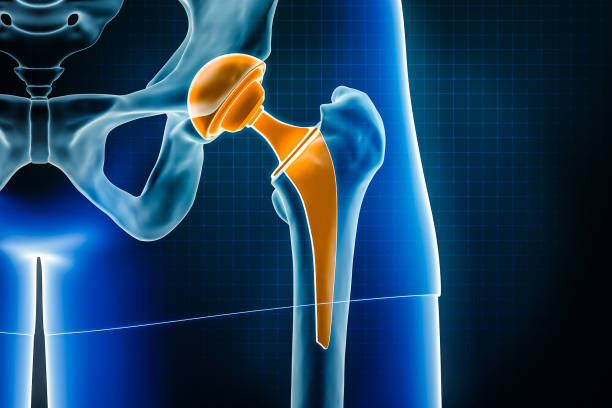
At Sharda Care - Healthcity, we specialize in Total Hip Replacement Surgery, designed to alleviate Hip Pain and enhance functionality by resurfacing the Bones within the Hip Joint. Our skilled Surgeons Replace the damaged femoral head with a Prosthetic ball-shaped component, which seamlessly integrates with a cup-shaped prosthesis to form the new socket of the Pelvis.
During the procedure, our Surgeons meticulously remove the affected sections of the Hip Joint and Replace them with durable components typically made of Metal, Ceramic, and High-Grade Plastic. This Artificial Joint, or Prosthesis, effectively reduces Pain and improves overall Hip function, allowing patients to regain mobility and enjoy a better quality of life.
Reasons for Hip Replacement Surgery
- Osteoarthritis: Also known as wear-and-tear Arthritis, Osteoarthritis damages the smooth cartilage covering the ends of Bones, leading to Joint Pain and Stiffness.
- Rheumatoid Arthritis: An autoimmune condition, Rheumatoid Arthritis causes inflammation that can damage cartilage and underlying Bone, resulting in Joint deformity and dysfunction.
- Osteonecrosis: Insufficient Blood supply to the Hip Joint's Ball Portion, often due to dislocation or fracture, can lead to Bone collapse and deformity.
Joint Replacement
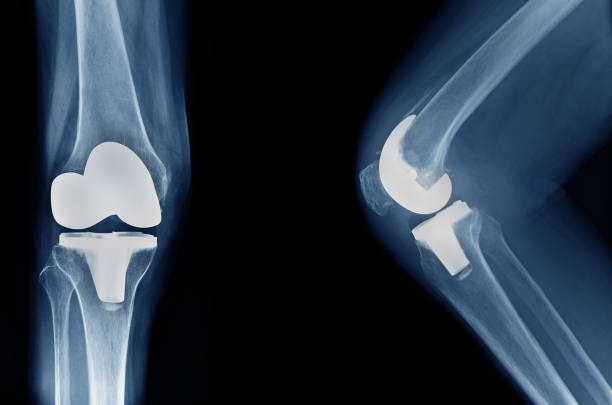
The Bone and Joint Replacement department at Sharda Care - Healthcity specializes in arthroscopy, catering to sports injuries, spinal injuries, trauma recovery, and complex joint replacements involving the hip, knee, elbow, and shoulder. Our skilled surgeons perform these surgeries with utmost care, ensuring maximum bone and joint health for patients under expert supervision. With a proficient orthopaedic team from various parts of the country, Sharda Care provides accurate diagnosis and treatment for all major and minor osteoarthritic issues, including Brachytherapy, extendable prosthesis, periarticular injury management, pathological and traumatic extremity fracture fixation, and Total Bone replacements. Our treatment modules include platelet-rich plasma transfusion for osteoarthritis patients, utilizing advanced technology for bone restructuring and minimally invasive surgeries to ensure rapid trauma recovery.
At Sharda Care, we employ cutting-edge technology for bone restructuring and perform minimally invasive surgeries, ensuring rapid trauma recovery. Our patient-centric approach emphasizes fast recovery, minimal scarring, reduced blood loss, and fewer follow-ups. Our team of experienced rheumatologists, anaesthesiologists, and rehabilitation doctors ensures a smooth patient recovery process, providing complete comfort and care.
Total Knee Replacement Surgery
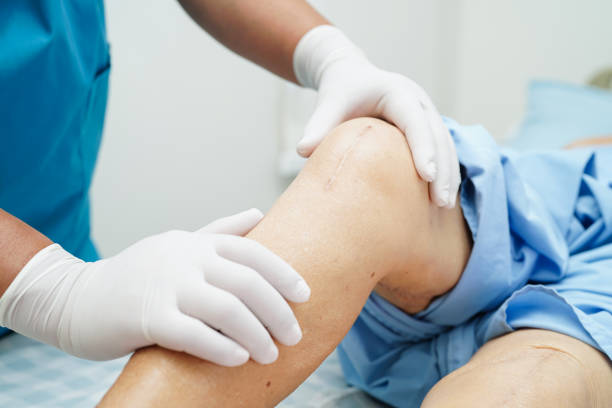
At Sharda Care - Healthcity, we offer Total Knee Replacement Surgery as a solution for individuals with injured or deteriorating Knee Joints. This Surgical procedure aims to alleviate Pain and improve Knee Function by replacing damaged Bone and Cartilage with Metal and Plastic components.
Before recommending Knee Replacement Surgery, our experienced Surgeons thoroughly assess your Knee's range of Motion, Stability, and Strength. Diagnostic tools such as X-rays are utilized to evaluate the extent of damage and determine the most suitable course of action. The selection of Artificial Joints and Surgical Techniques is personalized to each patient's unique characteristics, including Age, Weight, Activity Level, Knee Size and Shape, and Overall Health. Our team ensures that every aspect of the procedure is tailored to optimize outcomes and enhance patient satisfaction.
At Sharda Care - Healthcity, we offer various types of Total Knee Replacement Surgeries to address Knee-Related issues:
- Conventional Technique: The conventional method of Knee Replacement, which has been practised for decades, involves making an 8 to 12 - Inch incision on the Knee using standard tools and equipment. While this approach has benefited many individuals, advancements in the field have led to the development of more convenient and effective procedures. These modern techniques build upon the traditional method, offering added benefits and improved outcomes.
- Robotic-Assisted Knee Replacement: Robotic-Assisted Knee Replacement Surgery represents a significant advancement in Orthopaedic Care, providing precise and accurate results for individuals suffering from Knee problems. Using Robotic Technology, Surgeons can operate with minimal errors, shaping the surrounding bone with Handheld Robotics before inserting the Knee Implant. By utilizing a 3D representation of the Knee Profile, Surgeons can determine the optimal size and position of the implant, leading to more accurate and reliable outcomes. This approach can be applied to both Partial and Total Knee Replacement Surgeries.
Partial Knee Replacement: Also known as Unicompartmental Knee Arthroplasty or Unicondylar Knee Arthroplasty, Partial Knee Replacement targets only the diseased portion of the Knee, removing and replacing damaged Cartilage and Bone. This procedure differs from Total Knee Replacement, where the entire Joint's Bone and Cartilage are Replaced.
At Sharda Care - Healthcity, we are committed to providing cutting-edge Knee Replacement Surgeries tailored to each patient's needs, ensuring optimal outcomes and improved quality of life.
Spine Surgery
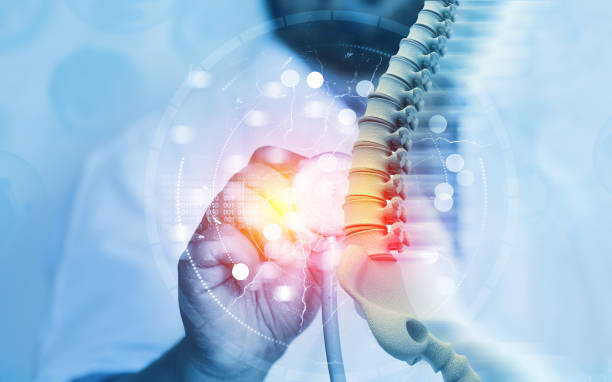
The Department of Orthopaedic Spine Surgery at Sharda Care - Healthcity adopts a comprehensive approach to provide top - quality care for Spine disorders. Our team utilizes the latest technology and advanced techniques to perform Spine Surgeries. With expertise in handling various Spine and Back Issues - such as Spinal Stenosis, Disc Pain, Degenerative Disc Disease, and Herniated Discs - we prioritize patient safety and comfort.
At Sharda Care, our highly talented Doctors and Surgeons stay abreast of cutting - edge advancements in Minimal Invasive procedures. We excel in complex procedures, including Traumatic Spine Fractures and Deformity correction Surgeries. Collaborating closely with primary care Physicians, Internal Medicine Doctors, and Physiotherapists, we tailor treatment options to each patient’s needs.
Choose Sharda Care for compassionate Spine care and optimal outcomes.
Spondylitis
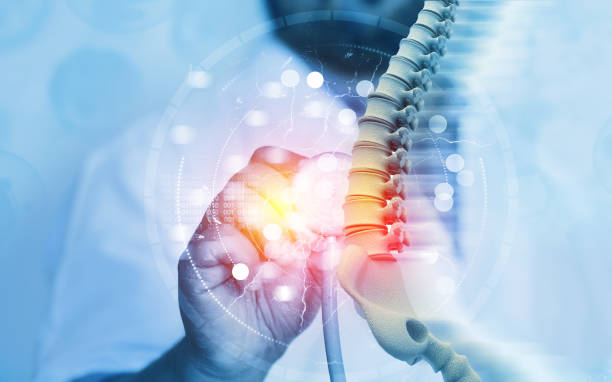
Spondylitis encompasses a group of chronic arthritis-related conditions that affect the Joints of the Spine and the Sacroiliac region. At Sharda Care - Healthcity , we provide comprehensive treatment for all types of Spondylitis, addressing inflammation in the Joints, Tendons, and Ligaments. Tendons, which connect Muscles to Bones, and Ligaments, which connect Bones to other Bones, are both affected by this condition. Inflammation in these areas can lead to the fusion of Bones and excessive Bone growth in the Spine. In severe cases, Spondylitis can result in abnormal curvature of the Spine.
We prioritize non-surgical interventions, striving to enhance patients' posture and mobility through tailored treatments and medication. Surgery is only considered when all other options have been exhausted. We meticulously evaluate each patient to ensure they are suitable candidates for surgical intervention, considering factors such as Medical History, Spinal Health, and overall well-being. At Sharda Care - Healthcity , we provide comprehensive care from consultation to discharge, ensuring the best possible outcomes for our patients.
Spondylitis affects multiple parts of the body, including:
- Back
- Joints
- Skin
- Eyes
- Digestive System
- Heart
Common symptoms of spondylitis include:
- Fatigue
- Muscle Pain
- Eye Inflammation
- Joint Pain
- Back Pain
- Swelling in the Arms and Legs
The different forms of spondylitis are:
Ankylosing Spondylitis: Also known as Axial Spondyloarthritis, this condition triggers inflammation in the Spine, potentially leading to the fusion of vertebrae. This fusion limits Spinal Flexibility and may result in a stooped posture. Breathing difficulties can arise if the Ribs are affected. Symptoms of Ankylosing Spondylitis include:
- Lower Back Pain
- Hip Joint Pain
- Stiffness
- Swelling
Enteropathic Arthritis (EnA): Characterized by Intestinal Pain and Inflammation, EnA can manifest as Back and Joint Discomfort. Symptoms may include:
- Abdominal Pain and Cramping.
- Chronic Diarrhoea.
- Weight Loss.
- Blood in the Stool.
- Joint Pain, particularly in the Lower Back, Hips, and Knees.
Psoriatic Arthritis (PsA): Linked with psoriasis, PsA induces Back Pain and Stiffness, primarily affecting smaller Joints like those in the Fingers and Toes. Symptoms of PsA include:
- Joint Pain and Stiffness, often in the Fingers, Toes, Lower Back, and Sacroiliac Joints.
- Swelling and Tenderness in the affected Joints.
- Psoriasis flare-ups, characterized by Red, Scaly Patches of Skin.
- Dactylitis, causing Swelling of entire Fingers or Toes (Sausage Digits).
Reactive Arthritis/Reiter’s Syndrome (ReA): Often following bacterial infections, ReA may stem from Sexually Transmitted Infections or Gastrointestinal issues. It typically causes Pain and Inflammation in Peripheral Joints, the Spine, and Sacroiliac Joints. Symptoms may include:
- Joint Pain and Swelling, commonly affecting the knees, Ankles, and Feet.
- Skin Rash, often on the Palms, Soles, or Trunk.
- Eye Inflammation (Conjunctivitis).
- Genital or Urinary symptoms, such as Painful Urination or Discharge.
- Mouth Ulcers.
Juvenile Spondylitis (JSpA): Juvenile Spondyloarthritis (JSpA) is a type of chronic inflammatory Arthritis that manifests in individuals aged 16 or younger. This condition initiates inflammation at the points where Ligaments and Tendons attach to Bone and Predominantly impacts the Joints in the Legs. Symptoms may include:
- Joint Pain and Stiffness, especially in the Hips and Knees.
- Morning Stiffness and Reduced Mobility.
- Fatigue and General Malaise.
- Inflammation of the Eyes (Uveitis).
- Delayed Growth or Puberty.






